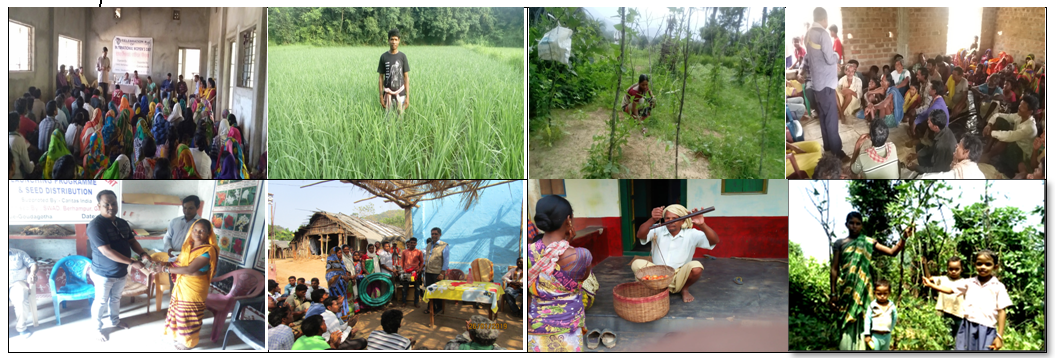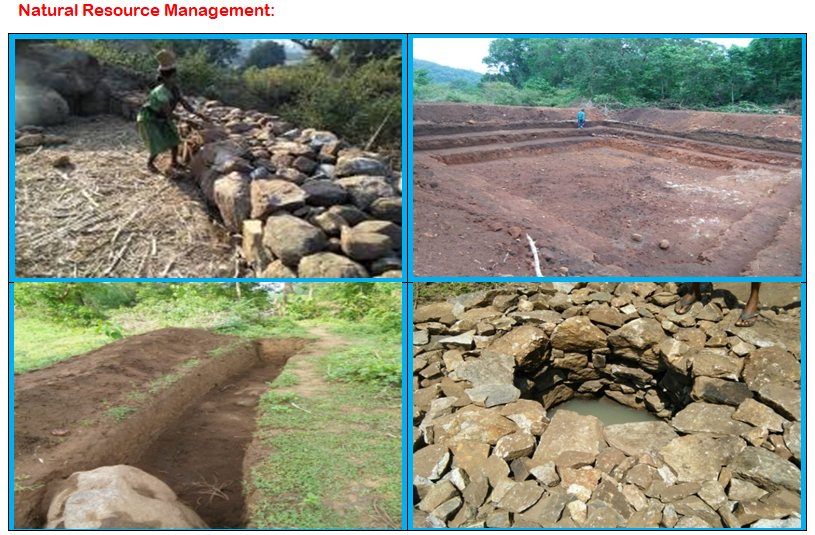
In collaboration with the financial and technical support of National Bank For Agriculture & Rural Development (NABARD), Odisha and Catholic Relief Service (CRS), SWAD has been implementing a project titled as “Watershed Approach for Resilient Livelihoods of Tribal Communities in Odisha” since 2017 to till date in 17 interior tribal villages (Adava, Dangeshkhal, Birikote and Antarba Gram Panchayats) of Mohana block in Gajapati district, Odisha, India covering 861 households (SC-6, ST-638, OBC/Gen-217) with 4276 population (male-2078 and female-2198).
The aim of the project is to ‘increase food security of poor tribal households’ in Gajapati district. There are three key objectives to achieve aim of the project:
- Farming Households have increased production of nutritious staple crops
- Targeted Households have increased income market- driven diversified livelihood options
- Pregnant/lactating women and children under 2 years of age in target households have improved dietary diversity.
The project has been supporting the communities to adopt low cost, sustainable and collective natural resource management practices using a watershed approach; and environmentally sustainable yield and income enhancing agriculture and livestock practices. The project focuses on vulnerable groups like landless households to diversify their livelihoods, reduce their acute dependence on forests and in the process, reduce further exploitation of natural resources. Additionally, the project engages with households to improve their dietary diversity with a focus on vulnerable members like pregnant women, lactating mothers and children below two years of age.



